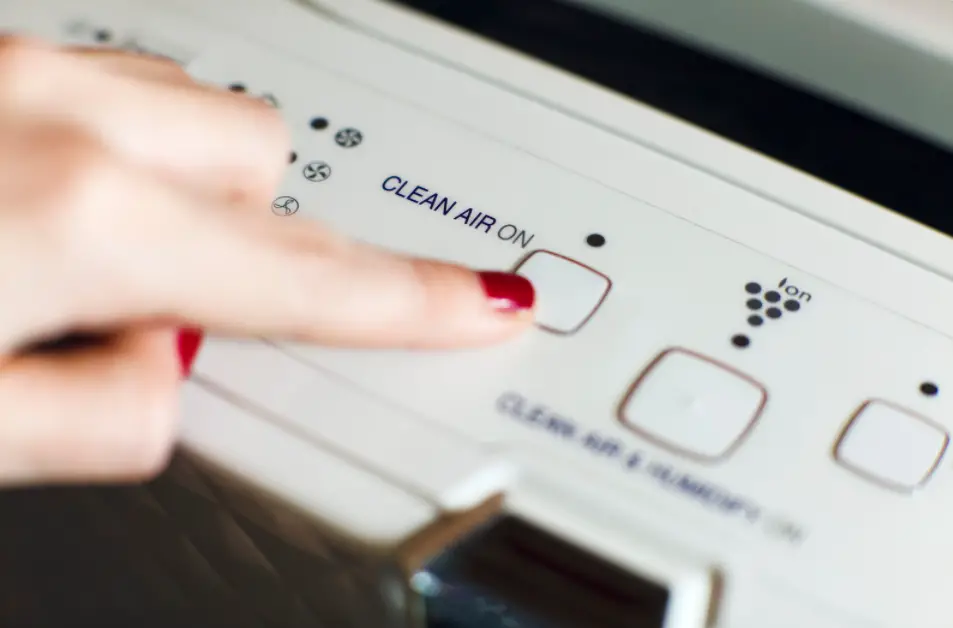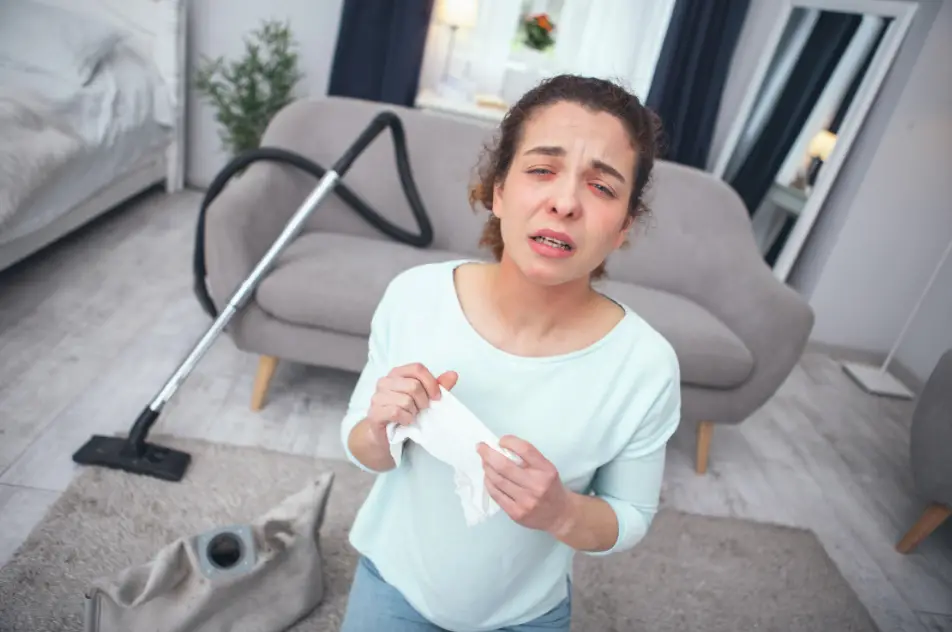
Due to their high availability in the market today in terms of cleaning the air, you might wonder: how do air ionizers work? Are they effective in clearing your home from dust and other particles that make you cough and sneeze all day? Let’s take a closer look at the technology behind these devices.
We care about what goes into your indoor air and we also want you to know how air cleaning devices work, which is why we wrote this article for you. What air ionizers do, at a glance, is spray out negative ions throughout your breathing space.
Once the negative ions stick to dirt and other debris, this extra weight causes them to fall to the ground where they won’t likely be inhaled. Therefore, the dust that floats around your house will be much easier to clean off the floor later on.
Do air ionizers really work?
Yes, ionizers work to remove dust and whatever similar-sized particle floats in the air. It is among the seven ways to keep the air clean, alongside air purifiers, especially if your house and/or office space is quite dusty.
However, there is a caveat – ionizers are only meant for dust and no VOCs. Sadly, ionizers were not designed to take out harmful chemicals from fuels, adhesives, and the like. You will still need the expertise of an air purifier that has a VOC remover – specifically a carbon filter.
If your main concern is excessive dust in the house then ionizers are sufficient for your living space and they work just fine. With that said, don’t expect them to also take out the smell of paint fumes and similar household chemicals!
Which is better: ionizer or air purifier?
We think that air purifiers are better when it comes to overall indoor air cleaning, simply because you can get the best and cheapest air purifier with both a HEPA filter for dust and a carbon filter for VOCs and bad smells.
While we like the ionizer’s ability to trap dust from mid-air, causing them to fall to the ground, it won’t work against harmful chemicals, which could cause health problems to you and your family (or workmates If you’re in an office) later on.
Emitting ozone is also a problem when it comes to ionizers. For an ionizer to be safe in the market, it needs to comply with the standards of CARB, UL, and other governing bodies when it comes to emitting the lowest and permissible amount of ozone.
When inhaled in large amounts, ozone can be harmful to your respiratory system, which is why we want it regulated! This is yet another downside to using ionizers and a reason why many people switch to air purifiers instead.
How do I know if my ionizer is working?
The easiest way to tell if your ionizer is working is if its motor runs properly. You should hear a humming motor noise depending on how big or small your ionizer is. Like air purifiers, ionizers, too, have their motor, but in their case, it generates negative ions.
Ionizers work by trapping particles in the air with negative ions and making them fall to your floor. However, it can be difficult to see with the naked eye sometimes. Therefore, the best way to know if it works is to visually inspect within a light-colored area.
Try testing the ionizer first near a floor or flat surface with a white coating. After running the ionizer for a while, look around the device for little traces of fallen dust. If you found some, it means that the ionizer is working properly.
Think of an ionizer as a vacuum cleaner but instead of drawing the dust into the device, it sprays out mini vacuum cleaners in the air to make it stick to a certain surface, such as your flooring or carpet, which you can eventually clean later.

Do ionizers get rid of smells?
Unfortunately, no – ionizers can’t get rid of your food smells and whatnot. This means that your last barbecue cookout will linger in your kitchen for quite a while if you are only using an ionizer to clean your indoor air.
Now, on the opposite side, you might wonder: do air purifiers remove smells? The answer is yes – with the correct filters. While ionizers can’t remove smells from the air because of their limited technology, air purifiers that use activated carbon filters can.
If your goal is to remove tobacco smells, leftover pizza stench, and mold odor, sadly, we don’t recommend ionizers for you. Instead, why not try an air purifier with an activated carbon filter to do the job (alongside your frequent house cleaning)?

Do ionizers reduce dust?
The short answer is yes – ionizers were made for removing dust from the air, after all! Since they use negative ions to put weight to floating dust or particle, causing them to drop, they will likely reduce dust at home.
However, here’s the long and detailed answer: keep in mind that ionizers only reduce dust that is floating in the air – not the ones that already dropped to the floor! It’s still your job to sweep the dust away because if you don’t, it will eventually go back into the air again!
This is why most people prefer an air purifier with a HEPA filter that sucks up the dust and debris because unless you have a clogged or dirty filter, there is little to no chance of the dust going back into your surroundings.
Conclusion
To wrap it up, ionizers do work when it comes to eliminating floating dust in the air. However, it has limited capabilities since it doesn’t work on VOCs and it only makes the dust fall to the ground. This means you’ll have to sweep it off manually after the ionizer did its job.
Compared to an ionizer, however, air purifiers have much more functionalities when it comes to cleaning the air. They have a filter that sucks up dirt and pollutants. Furthermore, with the right filter media, air purifiers will also reduce bad smells from the air.


